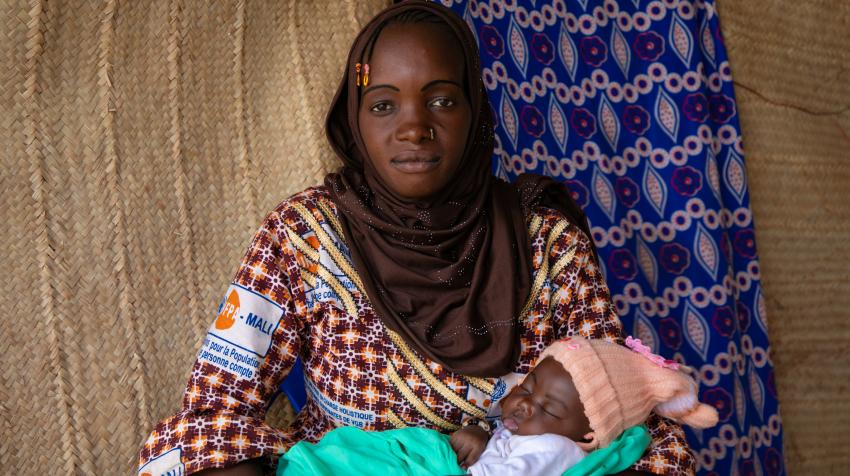The Petionville Golf Club sits upon a hillside overlooking Port au Prince and the sea. These days, its once-groomed fairways are home to nearly 50,000 people, among the 1.2 million displaced by the earthquake and crowded together in tents or tarpaulin lean-tos provided by the UN or international relief agencies.
When I visited last week, the sun was shining. Life went on, it seemed: children played,mothers washed clothes in open-air tubs. Many people had set up businesses and informal markets selling food, charcoal, fruit, shoes, shampoo. In the sunlight it might be easy to see this as a sign of hope, life amid the ruins. But when the rains come, the steeply
sloping ground will turn to mud, dangerous and diseased. For those trapped in the camp, hope will seem far away.
On Wednesday, world leaders gather at UN headquarters in New York for a critical donor's conference -- a very tangible expression of solidarity with the Haitian government and its people. President Rene Preval calls it a "rendezous with history," a cmpact to build what he calls "a new Haiti," a Haiti transformed. It is a mission to offer (and deliver) hope.
For weeks, experts have been assessing the needs and costs of the 12 January disaster. In tandem, President Preval and his government have worked out a strategic national "action plan" to guide the country's recovery and development. It is, by any measure, a visionary document.
Touring his devastated capital with the UN's Special Envoy, former President Bill Clinton, one top Haitian official pointed out the ruined national parliament and presidential palace. "We don't want to restore them," he said of the collapsed colonialstyle landmarks. He spoke of replacing them with something completely new, something modern and more suited to Haiti's ambitions for itself as a self-reliant developing nation with genuine hope for a fresh start and prosperous future.
That is our challenge in New York -- not to rebuild, but to "build back better," to create quite literally a new Haiti. Under the plan, a new Interim Haiti Reconstruction Commission would channel nearly $4 billion into specific projects and programs during the next 18 months. Over the next ten years, Haiti's reconstruction needs will total an estimated $11.5 billion. Clearly, this assistance must be well-spent and well-coordinated. It must provide for continuing emergency relief: food, sanitation and, most urgently at this moment, shelter. So far we have provided 1 million people with tents and tarpaulins (roughly threequarters of those in need) and will distribute 300,000 more within the next few weeks.
We now have a number of major sites around Port au Prince to which we can relocate people from areas vulnerable to flooding when the rainy season begins in earnest. Meanwhile, the UN mission is taking all measures to maintain security and, in particular, ensure that women and children in the camps can be safe from sexual violence.
As we move from emergency aid to longer-term reconstruction, let us recognize that we cannot accept business as usual. What we envision, today, is wholesale national renewal, root to branch -- a sweeping and ambitious exercise in nation-building. In partnership with the international community, Haiti's leaders are committing to a new social contract with their people. That means fully democratic government, grounded in sound economic and social policies that address extreme poverty and deep-rooted disparities of wealth. It also means fair and free elections, conducted with the UN's help, preferably by the end of this year.
This social contract must empower women -- as heads of households providing for their families, as entrepreneurs developing businesses, as advocates for the vulnerable, with full rights as decision-makers in evolving democratic institutions and civic action organizations. It must offer new opportunities for economic advancement -- above all, jobs. The UN's cash-for-work program should be a model. At the end of the day, only Haitians can rebuild Haiti -- again, build back better.
Haiti's leaders are well aware that this new partnership requires a commitment to good governance, transparency and mutual accountability -- between the government and the governed, between the public and private sectors, between Haiti and the international community. It requires fresh approaches to long-standing problems. Among them: the future of Haiti's over-crowded capital. If Haiti is to flourish, social infrastructure and economic development must be dispersed from Port au Prince to regions and cities throughout the country. That is why Haiti's national plan contains ample provision for environmental recovery, land reform and new investment in fisheries and agriculture. During the coming days, the world's leaders will rise to stand by Haiti in solidarity -- a solidarity to be measured in years, along after the initial shock of disaster has passed. I am confident that, together, we can set Haiti on the road to a new and very different future.
The work of building that promised tomorrow begins today in places like the Petionville camp, most immediately by moving tens of thousands of people to safety. But ultimately, we must offer something far less tangible but infinitely more sustaining: hope. And for Haiti, hope begins this Wednesday in New York.
The UN Chronicle is not an official record. It is privileged to host senior United Nations officials as well as distinguished contributors from outside the United Nations system whose views are not necessarily those of the United Nations. Similarly, the boundaries and names shown, and the designations used, in maps or articles do not necessarily imply endorsement or acceptance by the United Nations.



